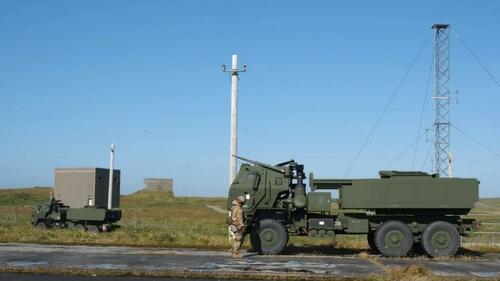Army Sends 130 Troops, Missile Systems To Remote Alaskan Island For ‘Russia Threat’
The Pentagon has taken the rare step of deploying US Army ground forces to an Alaskan island on fears that Russian and Chinese warships are coming closer and closer to America’s shores.
Some 130 soldiers have been sent to an uninhabited, remote island in the Aleutian chain of western Alaska following a series of Russian and Chinese military assets being spotted of the coast, including warplanes.
For example, just the past week saw a grouping consisting of 8 Russian planes and four navy vessels come close to Alaska. Moscow and Beijing recently ordered stepped-up joint patrols and naval drills in the Pacific region.
“It’s not the first time that we’ve seen the Russians and the Chinese flying, you know, in the vicinity, and that’s something that we obviously closely monitor, and it’s also something that we’re prepared to respond to,” Pentagon spokesman Maj. Gen. Pat Ryder described.
The island in question where US troops are newly deployed is called Shemya Island, which lies some 1,200 miles southwest of Anchorage.
The Army is calling it a “force projection operation” which began on Sept.12.
Below is the latest press release from the North American Aerospace Defense Command complaining of recent incursions in the Alaska Air Defense Identification Zone (ADIZ) off Alaska:
At least two High Mobility Artillery Rocket Systems (HIMARS) have been placed on the island, which has a US Air Force air station dating back to WWII.
According to more background on the location:
Shemya Island is home to the COBRA DANE radar system, operated by the United States Space Force (previously the Air Force oversaw it), that is used for tracking ballistic missiles and similar objects. It is also home to an air station.
The Aleutian Islands were also a battleground during World War II, with the Japanese military seizing several of the islands before the United States retook them.
Already this year, Russian planes have buzzed the ADIZ off Alaska some 25 times, according to US defense sources. At this rate, a new record will be set by year’s end.
Tyler Durden
Wed, 09/18/2024 – 15:05

